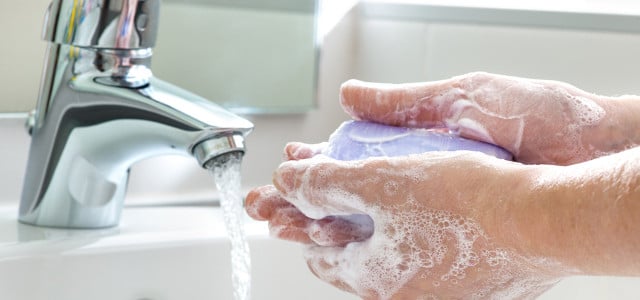
If you want to avoid plastic, you often use solid bars of soap instead of liquid soap from a soap dispenser. But is that also hygienic? Or does the bar of soap transmit bacteria and germs?
Solid soap is the better choice for the environment – if you use soap bars, you usually save a lot of plastic and packaging waste. Many people still prefer to stick with liquid soap out of concern that the bar of soap is too contaminated with bacteria.
After all, we touch the soap with dirty hands and contaminate it with the germs that stick to our hands. But how great is the risk of infection from solid bars of soap really? We investigated.
Solid soap: Is there a health risk from germs?
The hygiene experts at the German Advisory Center for Hygiene in Freiburg (BZH) clearly and unambiguously give the all-clear: solid bars of soap are no more unhygienic in private households than the soap from the dispenser. It is true that more bacteria accumulate on solid soap. However, a large number of studies have shown that the bacteria and germs are not transferred, but are reliably rinsed off with the soap foam and then disappear down the drain.
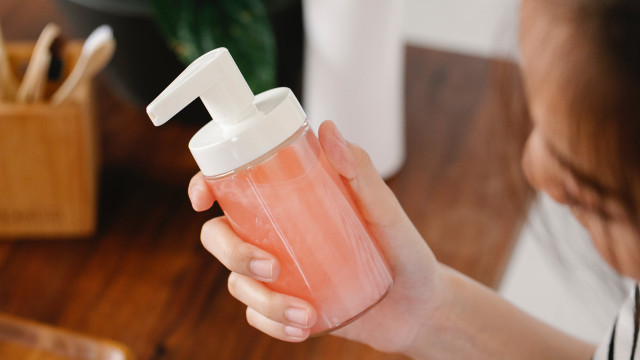
When it comes to hygiene, solid and liquid soap are equally equal: “The prejudice that solid soap has poorer cleaning power is not true. Many studies have refuted this,” emphasizes Reinold Gross, head of the Institute for Laboratory Medicine at the Marienhospital in Osnabrück, to ntv.
Solid soaps are an all-round good choice
So the good news is: solid soap is no less hygienic than liquid soap. Anyone who uses solid soaps at home produces less plastic waste – without any risk to health. You can find soap recommendations in our list of the best natural soaps:
Leaderboard: The best natural soap
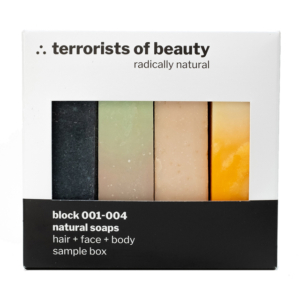 1st placeTerrorists of Beauty Soaps
1st placeTerrorists of Beauty Soaps
5.0
11
DetailTerrorists of Beauty**
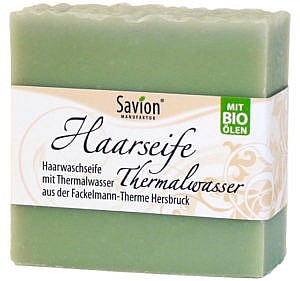 place 2Savion soap
place 2Savion soap
4.7
18
DetailRaccoon**
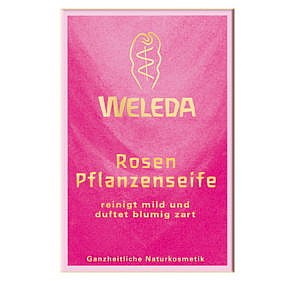 place 3Weleda vegetable soap
place 3Weleda vegetable soap
4.5
62
DetailBioNaturel**
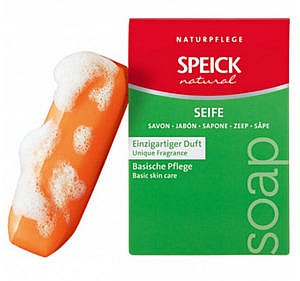 4th placeSpeick soap
4th placeSpeick soap
4.6
21
DetailBioNaturel**
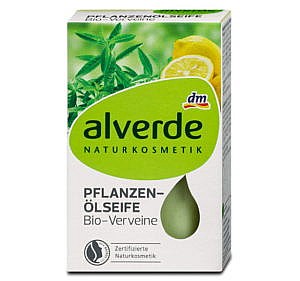 5th placeAlverde Vegetable Oil Soap & Liquid Soap
5th placeAlverde Vegetable Oil Soap & Liquid Soap
4.4
74
detail
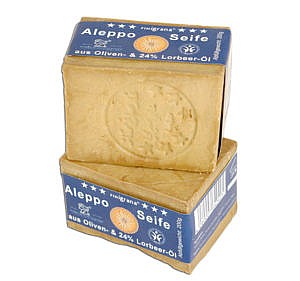 Rank 6Finigrana Aleppo soap
Rank 6Finigrana Aleppo soap
4.5
11
DetailAvocadostore**
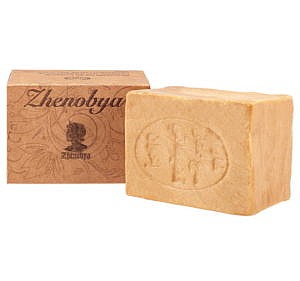 7th placeZhenobya Organic Aleppo Soap
7th placeZhenobya Organic Aleppo Soap
4.4
19
DetailBioNaturel**
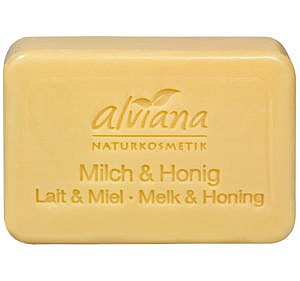 8th placeAlviana vegetable oil soap
8th placeAlviana vegetable oil soap
4.5
4
DetailEcco Verde**
However, liquid soaps that are neutral or slightly acidic are recommended for medical practice.
Regardless of whether it is liquid soap or bar soap: hygiene is important
The general rule for solid soaps is that it is important to store them correctly. The soap shouldn’t be wet for too long because bacteria love a moist environment. It is therefore ideal to have a soap dish where the water can drain easily so that the soap dries quickly.
Even better because it’s even more hygienic: the good old soap holder, in which the soap is kept suspended using a small magnet.
Germs can collect on the pump mechanism of soap dispensers, so you should clean it regularly.
- Shower soaps: Aleppo soap, black soap, salt soap – shower plastic-free
Washing your hands properly prevents illness
Conclusion: It doesn’t matter which soap you use – the main thing is that your hands are washed. Because washing your hands is an important protection against illness. The important thing is how: The hands should be thoroughly soaped inside, outside and between the fingers – the whole procedure should take 20 seconds. The question of whether you wash your hands with warm or cold water is less important:
And when does disinfecting make sense? According to the Federal Center for Health Education, disinfecting your hands in a private environment only makes sense if there is an increased risk of infection (e.g. salmonella disease, flu or norovirus infection). “Even if immunocompromised people with an increased risk of infection live in the household or relatives in need of care are being cared for, hand disinfection can be useful in certain situations.”
Read more on Techzle\.com:
- Make soap yourself: instructions with natural ingredients
- Skin, hair and body: This is how you find the right soap
- Hair soaps in the test: This is how to wash your hair without shampoo